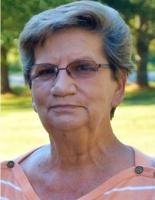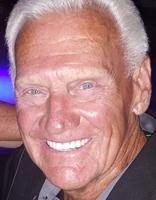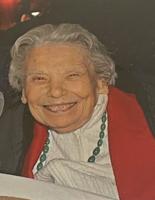Author’s Note: For the purpose of this essay, I use the word soldier to mean any man or woman who served in any of America’s armed forces. An edited version of this article first appeared in the November 2020 issue of Kentucky Monthly.
EDITOR’S NOTE: This is the second part of a two-part column penned by Dr. James Gifford.
Kentucky produced a number of heroic soldiers like Alvin York. On Sept. 26, 1918, Sergeant Willie Sandlin from Leslie County, acting alone, attacked and disabled three German machine gun nests and killed all 24 occupants. Like York, Sandlin received the Medal of Honor.
Another eastern Kentuckian, Peter McCoy of Pike County, fought his way into a German trench, killed seven enemy soldiers, and captured 17 more. At the end of the battle, his uniform and the pack on his back bore dozens of bullet holes. McCoy was one of eight men from his company who survived this battle. For his valor, McCoy was awarded the Distinguished Service Cross.
Three decades later Appalachian men and women helped America fight a two-front war that spanned the entire globe. Franklin Sousley, from Fleming County, was one of the six men who raised the flag on Mount Suribachi at Iwo Jima. Sousley was killed in action three weeks later, but many of his Appalachian brothers and sisters returned to a hero’s welcome. More importantly, they derived the educational benefits of the G.I. Bill, and used their education and training to revitalize the quality of life in their Appalachian homeland.
Another famous — albeit indirectly — eastern Kentucky soldier of the World War II era was Robert Lee Stewart of Letcher County. Stewart served in “F” Company, 27th Infantry regiment of the 25th Infantry Division. Soldiering with him was James Jones, a young man from Robinson, Illinois, who later wrote a trilogy of WWII novels: “From Here to Eternity,” “The Thin Red Line” and “Whistle.” In each novel, a principal character is a heroic rifleman from Appalachia. Although Jones give him a different name in each novel, all three were modeled after Stewart.
In a letter to his famous editor, Maxwell Perkins, Jones saluted Stewart’s alter ego, Robert E. Lee Prewitt, as a man of “intense personal pride.” Later, he described the Stewart/Prewitt character as an example of Appalachian combat soldiers and observed, “I have seen such men do absolutely unbelievable things in combat.” Through his fictional persona, Robert Lee Stewart became a symbol for the Appalachian soldiers of World War II, just as Alvin York and Willie Sandlin represented mountain soldiers of World War I.
Sadly, the war to make the world safe for democracy and the war to end all wars did not eliminate international warfare, and throughout the rest of the 20th century Appalachian men and women marched forth to serve their country in Korea, Vietnam and the Middle East.
On July 22, 2003, U.S. Army Private Jessica Lynch, a prisoner of war who was rescued from an Iraqi hospital by U.S. Special Forces, received a hero’s welcome when she returned to her hometown of Palestine, West Virginia. The story of the 19-year-old supply clerk, who was captured by Iraqi forces, had captivated America, although it was later revealed that some of the details of Lynch’s dramatic capture and rescue had been exaggerated.
Research by East Tennessee State University’s Pat Arnow and Bert Allen, a professor of Psychology at Milligan College, indicates that Appalachian soldiers in the Korean War comprised eight percent of the fighting force and received eighteen percent of the Medals of Honor. In the Vietnam War, Appalachian soldiers were awarded thirteen percent of the Medals of Honor, although only 7% of the fighting forces were from the Appalachian region.
Kentucky’s John M. Trowbridge, a freelance military historian, has compiled a list of 93 men and one woman with ties to Kentucky who have received the Medal of Honor; twenty are from the Appalachian counties. In the Korean War, all five of Kentucky’s Medal of Honor recipients were from Appalachia: Captain William E. Barber of Morgan County; Corporal John Walton Collier of Greenup County; First Lieutenant Carl H. Dodd from Harlan County; Private David M. Smith from Rockcastle County; and Private First-Class Ernest Edison West from Greenup County. These statistics testify to the significant role that Appalachian people have played in America’s military history, but statistics alone can never completely capture the enormous contribution these men have made.
We began another century of American life with many of the same sad themes of our past. Americans continue to fight for the freedoms that we won on the field of battle in 1776, and the people of Appalachia continue to play a major role in our military efforts.
Ask old soldiers about heroes, and they will tell you that the real heroes are the men and women who did not return. They were young people in an enemy’s land, far from home and the people they loved. They wanted to live. They wanted to come back home, marry, build a home and a life. But they paid the ultimate price for the freedoms and privileges that we Americans enjoy today.
All of us owe a great debt to America’s soldiers. Every one of us should sit down and make a list of the freedoms we love and the comforts we enjoy. Look at your list. It’s a copy written in ink. The original was written in the bright red blood of an American soldier.
This essay does not — and could not — provide the story of each of our region’s patriots and heroes. The men and women described here march through these paragraphs as representatives of every eastern Kentucky patriot and hero, just as every eastern Kentucky soldier represents soldiers from many other states.
Looking back on Appalachia’s role in American military history, we can easily overemphasize the popular heroes like Andrew Jackson, Davy Crockett, and Alvin York and not provide enough praise for the thousands and thousands of other men and women who served their country quietly and bravely. This essay is a testimony to unrecognized heroes. It honors every man and woman from Appalachia who served our country. They were patriots for what they did, and heroes for what they were willing to do.
Patriots and heroes, I salute you.
DR. JAMES GIFFORD, Ph.D., is the CEO and Senior Editor at the Jesse Stuart Foundation.













